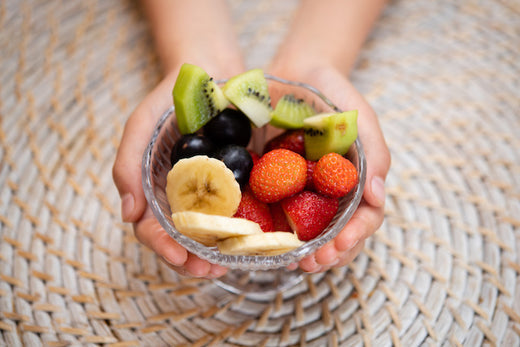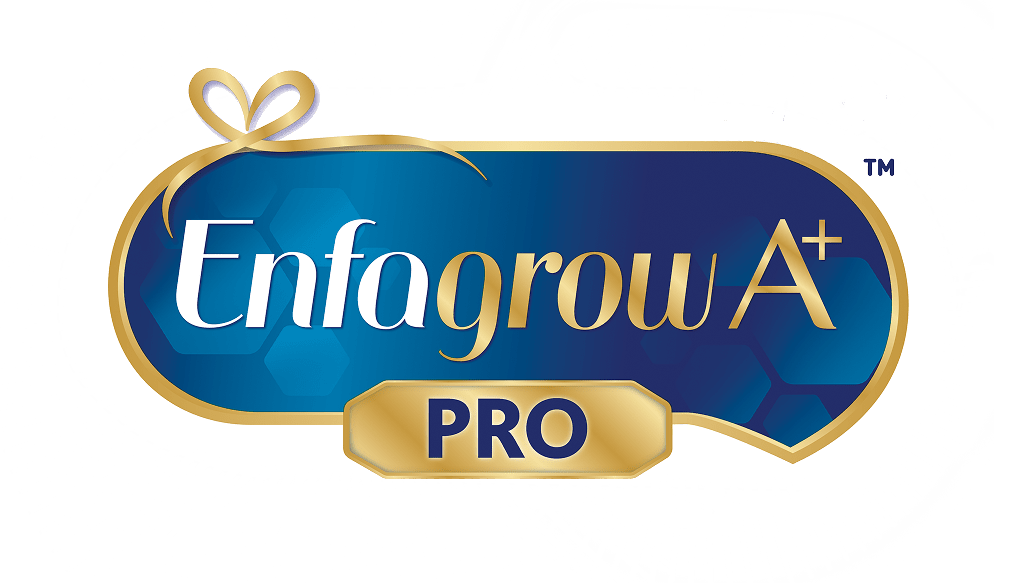

Growing children whose bodies are fast developing need adequate amounts of the right kids vitamins and minerals to support their growth and strengthen their immune system. Along with playtime and cuddles, which help in motor skills development and emotional health, a balanced diet with all the right nutrients is a great immunity booster that can help ensure good overall physical health.
Nurturing physical wellbeing and a b immune system is ideal as it helps to protect a child from getting sick. And this becomes important more so now with the presence of COVID-19.
When it comes to boosting your little one’s immunity and protecting them from disease, parents can help by incorporating key kids vitamins and minerals into their daily diet. Remember, immunity building starts with good nutrition.
Here’s a list of the most common and important kids vitamins and minerals to build ber immunity.
How to Build Immunity with Kids Vitamins and Essential Minerals
-
Zinc
Apart from promoting a higher resistance to infections, zinc is also recommended as an effective intervention to lower the morbidity rate associated with diarrhoea and respiratory infections in young children2. Zinc also promotes healthy growth and development amongst young children2. It also fights inflammation. Healthy sources of zinc include red meat, poultry, beans and nuts3.
-
Prebiotics
Prebiotics can also make for a great addition to a child’s diet as it can balance the amount of healthy and unhealthy bacteria in our body3. Prebiotics play an important role in your child’s immunity as it takes care of the gut, where 80% of their immune cells reside3. Green vegetables, tomatoes, and bananas are all good sources of prebiotics3.
-
Probiotics
Probiotics consist of live bacteria that ensure the health of your digestive system, which subsequently helps to boost your child’s immunity and prevent diseases. Interestingly, roughly eighty percent of our immune systems are made up of probiotics, which can be found in the gut4. As such, it is important for children to consume foods that are rich in probiotics, such as yoghurt4. Keeping a healthy balance of good bacteria in the gut helps prevent diseases and keep immunity at an optimum level.
-
Vitamin A
This vitamin is an immunity booster that promotes normal growth, vision and enhances immune function. It is found in yellow and orange vegetables such as carrots, dairy, butter, egg yolk, and oily fish like salmon, sardines, and herring. You can prep simple child-friendly fish dishes by simply steaming and boiling with seasoning and vegetables.
A precursor to Vitamin A, beta-carotene is widely recognised as an immunity booster, which is largely attributed to the nutrient possessing antioxidant properties, and the ability to promote the production of disease-fighting cells in the body12. Plant-based foods such as carrots, green leafy vegetables, capsicum and oranges are all foods that are chock full of carotenoids.
-
B Vitamins
This group of vitamins — B1, B2, niacin, pantothenic acid, B6, biotin, B12 and folic acid — are kids vitamins which can promote a positive production of red blood cells, and help in various metabolic functions5. Food sources of B vitamins include red meat, poultry, fish, soy, milk, eggs, whole grains, and enriched bread and cereals. Kid-friendly recipes that are chock full of B vitamins include chicken sandwiches with tomato slices and lettuce, snacks that are made with hard-boiled eggs and pureed spinach with bite-size pieces of carrots or broccoli.
-
Vitamin C
Also known as ascorbic acid, this is the body’s weapon against infections and promotes the healing of cuts and wounds. It is also important for the health of body tissues, such as the gums, bones and blood5. Besides that, Vitamin C is an antioxidant, which helps to reduce cell damage caused by free radicals in the body, thus making it an important component of immune system support. It also promotes healthy gums, teeth, bones, and cartilage5. Get Vitamin C from citrus fruits, strawberries, tomatoes, sweet red peppers, oranges, and broccoli - all of which can be treated as delightful snacks for your kids.
-
Vitamin D
Vitamin D is another immunity booster that strengthens teeth and bones while helping the body absorb minerals like calcium5. Besides sunlight (10-15 minutes per day), children can get Vitamin D from fortified dairy products and fish5. When taking your kids outdoors, use sunscreen to protect them from harmful UV rays. Scrumptious snacks that you can include in your kids’ diet are cheese snacks, raisin bran muffins, banana mango smoothie and scrambled egg muffins.
-
Vitamin E
According to several studies, Vitamin E has been shown to improve immune system response as you age, and minimise the oxidative damage that can lead to debilitating health problems such as cancer or asthma. Healthy food sources of immunity booster kids vitamins like Vitamin E include nuts, seeds and leafy greens.
-
Iron
This mineral helps produce blood and strengthen muscles, especially during periods of growth spurts6. Beef, lamb, turkey, fish are healthy sources of heme iron, whereas beans, and fortified breads and cereals are good sources of non-heme iron. Ideally, foods which provide an intake of heme iron is preferred, as it is better absorbed by the body. However, non-heme iron absorption can also be enhanced by consuming foods which are rich in Vitamin C — oranges, broccoli, tomatoes — together with meals. Some iron-rich food ideas for children include beef stroganoff, mini lamb shank pies, peanut butter sandwiches, pureed spinach, and watermelon smoothies.
-
Milk Fat Globule Membrane (MFGM)
Not many parents know about MFGM, but it is an important nutrient-rich coating of milk fats, derived from milk7. It helps in immunity building by attaching itself to a child’s immune cells and activating them, adding another line of protection against diseases7. MFGM can be consumed from certain milk formulas.
-
Docosahexaenoic Acid (DHA)
DHA is a type of nutrient that is essential for the healthy growth and development of young children. A study on the importance of Omega-3 fatty acids — EPA and DHA — in children’s nutrition found that DHA was also able to strengthen their immune systems and protect them from early childhood allergies8. The same study also suggests that DHA plays a vital role in the development of a child’s cognitive functions and enhancement of visual acuity8.
-
Yeast Beta-Glucan
Yeast beta-glucan is a natural immune nourishing fibre that helps support your child’s defenses against respiratory infections. A randomised clinical trial showed that three to four-year old children who were given formula milk containing yeast beta-glucan, DHA, and prebiotics had a ber immune resistance to diseases. The trial also found that children involved in the study also experienced fewer episodes and shorter durations of respiratory infections9.
-
Selenium
Selenium — a component of various enzymes and selenoproteins — is essential for the production of DNA, and boosts a child’s immune system. Selenium is an antioxidant that can help to break down peroxides, which can cause cellular damage and put a child at risk of severe infections10. Healthy food sources of selenium include lean meat, poultry, seafood and eggs.
-
Iodine
Iodine plays an important role in various biochemical reactions in the human body and is helpful in boosting a child’s immune system11. You can get iodine from foods such as fish, shrimp and other seafood.
Vitamins and minerals are our body’s best allies as immunity boosters, and they play an important role in how to build immunity. They are one of the wisest investments we can make for our children’s future. Making kids vitamins and minerals part of your child’s daily diet will help them grow into healthy, b adults who get the most out of life.
So let’s lead our children onto the path of health and wellness. Let’s give them their daily dose of kids vitamins and minerals. And hopefully, they will remember and carry these healthy diets into adulthood.
Be part of the Enfamama A+ Club today to unlock a world of privileges and benefits which include free samples, exclusive vouchers, promotions, expert advice, and many more!
Expert Resource:
Dr. Raymond Choy Wai Mun
(MCR 18097A)
MBChB (UK), Aviation Medicine (Singapore)
References:
- Micronutrient Facts (n.d.) Retrieved Sept. 24, 2020 from https://www.cdc.gov/nutrition/micronutrient-malnutrition/micronutrients/index.html
- Zinc supplementation and growth in children (July 2013). Retrieved November 5 from https://www.who.int/elena/bbc/zinc_stunting/en/
- Prebiotics are an easy way to prime kids’ immune systems to fight viruses (July 3, 2017). Retrieved November 27, 2020 from https://www.kidspot.com.au/health/wellbeing/vitamins-and-minerals/prebiotics-and-kids-health/news-story/4e02aa5befc61e3fa92bad49fa652a90
- Foods To Boost the Immune System (2020). Retrieved September 25, 2020 from https://www.pcrm.org/news/blog/foods-boost-immune-system
- Vitamins (July, 2014) Retrieved Oct. 9, 2020 from https://kidshealth.org/en/kids/vitamin.html
- Iron deficiency in children: Prevention tips for parents (Dec, 2019) Retrieved Oct. 9, 2020 from https://www.mayoclinic.org/healthy-lifestyle/childrens-health/in-depth/iron-deficiency/art-20045634#:~:text=Why%20is%20iron%20important%20for,children%20is%20a%20common%20problem
- Modulation of immune function by milk fat globule membrane isolates (2014). Retrieved on September 24, 2020 from https://www.sciencedirect.com/science/article/pii/S0022030214001258
- In Time: Importance of Omega 3 In Children’s Nutrition (January-March 2017). Retrieved November 5, 2020 from https://www.ncbi.nlm.nih.gov/pmc/articles/PMC5417803/
- Follow-up Formula Consumption in 3- to 4-Year-Olds and Respiratory Infections: An RCT (June 2014) Retrieved Sept. 24, 2020 from https://pediatrics.aappublications.org/content/133/6/e1533
- Selenium (N.D) Retrieved November 5, 2020 from https://www.hsph.harvard.edu/nutritionsource/selenium/
- A Role for Iodide and Thyroglobulin in Modulating the Function of Human Immune Cells (November 15 2017) Retrieved November 5, 2020 from https://www.ncbi.nlm.nih.gov/pmc/articles/PMC5694785/
- Foods To Boost the Immune System (2020). Retrieved September 25, 2020 from https://www.pcrm.org/news/blog/foods-boost-immune-system





